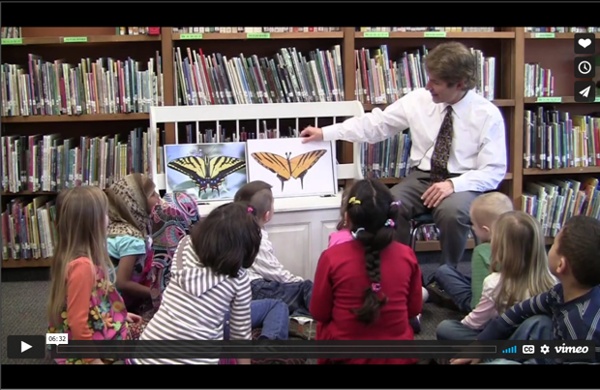



A new curated digital collection of videos and learning resources for teachers everywhere Kim Preshoff is the Obi-Wan Kenobi of science teachers in her community. With more than 25 years of classroom experience, she’s an expert at how to use the force of curiosity to keep kids engaged and learning. For her TED-Ed Innovation Project, Preshoff created a classroom-ready digital collection of 100+ great videos and learning resources about core topics in art, history, science, and beyond. [To add a video to your school's learning library, use the TED-Ed Lesson Creator.] Can Six Year Olds Really Demonstrate Their Learning? - Getting Smart by Guest Author - edchat, EdTech, eportfolios, student blogging By Kathy Cassidy This week we finished up another one of our project based learning (PBL) or inquiry-based units in my first grade classroom. It had the grand title of rules, relationships and responsibilities. Why I Let Students Take the Lead in Learning Demonstration
VESPA Mindset Its probably fair to say that the absence of EFFORT pretty much guarantees failure; however, more effort on its own is not a guarantee of success! You have to practice in the right way Malcolm Gladwell (Outliers, 2008) suggests that elite performers will generally have to put in 10,000hrs of work to become the best in any field. However, Ericsson and Pool (2016), claim that Gladwell misinterpreted the research in a number of ways. EFFORT varies from field to field. In music, for example, many top musicians quite often exceed this number of hours, whereas Ericsson found that you could become a world memory champion in far fewer hours.
The evolution of the book - Julie Dreyfuss Prior to the release of the Amazon Kindle in November 2007, Stephen Levy commented in his Newsweek article, “Amazon: Reinventing the Book,” on the concept of the book as an invention. Quoting Amazon CEO Jeff Bezos directly, Levy writes that “‘books are the last bastion of analog.” This phrasing suggests the book as a set of definable qualities that can be manipulated, redefined, and commodified. But Levy also issues a warning that eventually “the surge of technology will engulf all media.” In an ever-increasing mass market of iPads, computers, and eBooks, 21st-century technology will redefine the codex of literature and the reading experience in the same way that the codex once revolutionized reading by moving away from the scroll. Watch this comic video, which comments on this anxiety.
What is personalized learning? When adopting technology in the classroom, one of the key concerns for educators is classroom management. Often, they believe that with devices come three options: Ban devices outright (Good luck!)Lock them downOpen your classroom up to the Wild Wild West! However, I have found that many traditional methods of classroom management readily translate to a technologically rich curriculum – with some modification. Restructure the Classroom
A Recovery Curriculum: Loss and life for our children and schools post pandemic In this think piece, which considers how it will be for children when they return to school following the COVID-19 pandemic, Barry Carpenter, CBE, Professor of Mental Health in Education, Oxford Brookes University and Matthew Carpenter, Principal, Baxter College, Kidderminster explain why they believe a Recovery Curriculum is necessary to successfully transition children back to school. Following the warm reception to this think piece which outlined the need for a recovery curriculum, Professor Barry Carpenter and Matthew Carpenter are building a growing community of practice for leaders and practitioners to join together and share ideas. Here you’ll be able to find the latest podcast that delves deeper into some of the ideas, concepts and research behind the think piece and begins to think about questions that can be asked as you prepare to lead the recovery. “When will they actually go back to school?” This is the cry from many parents, as we write and there is no answer.
Downloadable lesson materials 36 Questions to fall in love Level B1 upwards Skills: speaking and listening Language: Question forms (including slightly more complex B1 forms) Personalized Learning: A Working Definition A group of philanthropies and school and technology advocacy groups, with contributions from educators, compiled a four-part "working definition" of the attributes of personalized learning. They also identified critical questions for K-12 officials to consider in implementing personalized learning. Related Story: What Is 'Personalized Learning'?